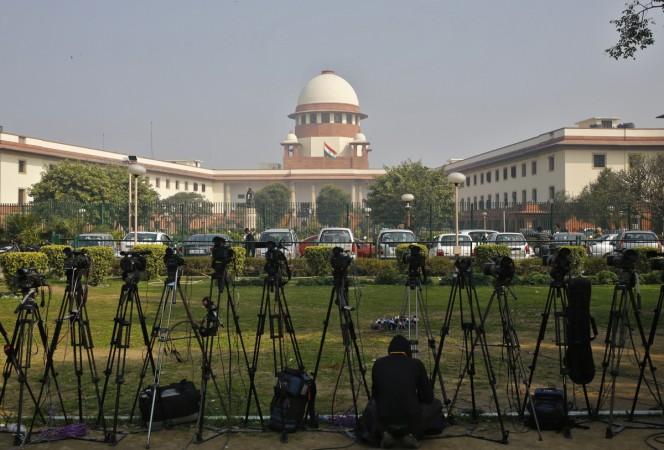
Supreme Court on Wednesday issued notice to all states and Union Territories seeking their opinion on legalising passive euthanasia. Will a religion-driven nation like India allow "self-willed death"?
An NGO, Common Cause, filed a petition seeking legal permission for a person in medically vegetative condition to die by withdrawing life-support systems on commands of medical experts.
The NGO in its petition proposed that a person would sign a will in robust good health, which would give him legal rights to die with dignity, in case he suffers terminal disease.
The constitution bench headed by Chief Justice RM Lodha, Justice Jagdish Singh Khehar, Justice J Chelameswar, Justice AK Sikri and Justice Rohinton Fali Nariman has given the states and UTs a period of eight weeks to revert to the notice.
Former Solicitor General TR Andhyarujina has been appointed by the court to provide unbiased opinions on the issue.
The Centre has, however, expressed strong contention against the plea and referred to euthanasia as a form of suicide. It said the Parliament should be handed over the responsibility to decide on the issue, according to IBN.
What religions have to say about euthanasia?
The overall religious assumptions in India disapprove of self-willed death.
Hinduism
The Hindus, who are morally bound to their religion or culture, would strongly disapprove of euthanasia, which they consider a suicide. Hindus believe that a person committing suicide does not attain Moksha or salvation from the cycle of life and death. It is again looked at as an act of violence, as a consequence of which the doctor and patient both will be devoid of Moksha.
Islam
Muslims strongly condemn euthanasia as they believe life and death of a person depends on Allah's will, and human beings are prohibited from going against His will.
Sikhism
Holding a similar view like that of Muslims, Sikhs believe that life is gift of God; hence one must accept sufferings without complaint.
Christianity
Christianity also does not support euthanasia, as they too believe life is a gift of God and one must respect it.
Buddhism
Following similar belief of karma as Hindus, Buddhists believe that their next life depends on their deeds of past life. Also, they are against causing harm to any life.
Although there is no direct mention of euthanasia in Buddhism, they too do not seem to support it as both the giver and the taker of euthanasia would commit harm.
Jainism
The most liberal of all is Jainism, which allows voluntary death by fasting.
Ancient examples of self-willed death
The Hindu mythology suggests that Lord Rama along with his brothers took "jal samadhi" (water burial)— in river Saryu near Ayodhya.
The ancient history suggests that Hinduism and Jainism accepts fasting unto death, only for those who are free from every responsibility in life and whose desires and ambitions have been fulfilled.
Despite a few instances of acceptance of euthanasia in some or other form, India is likely to resist voluntary death. In addition to that, Indians think and act in accordance with their religious faith, which will prohibit them from accepting euthanasia.

















